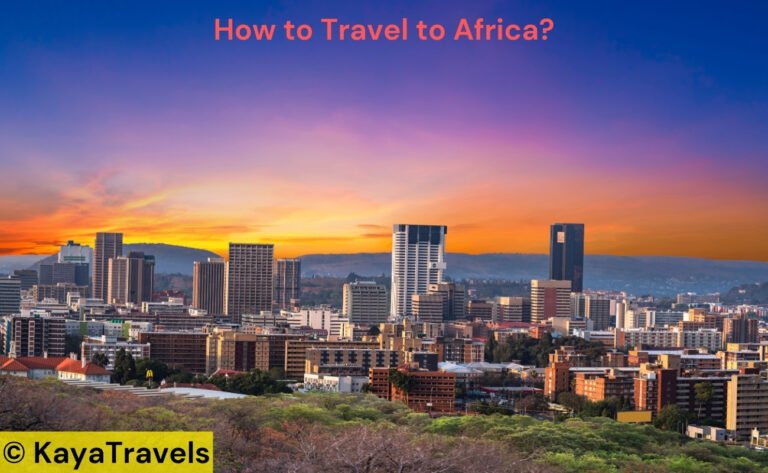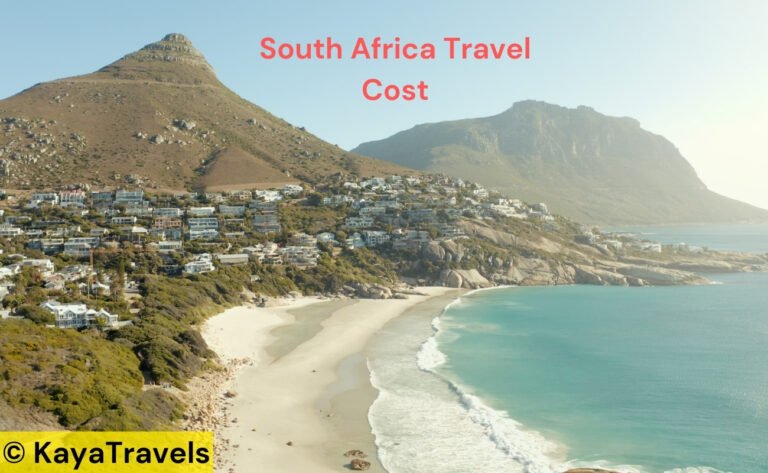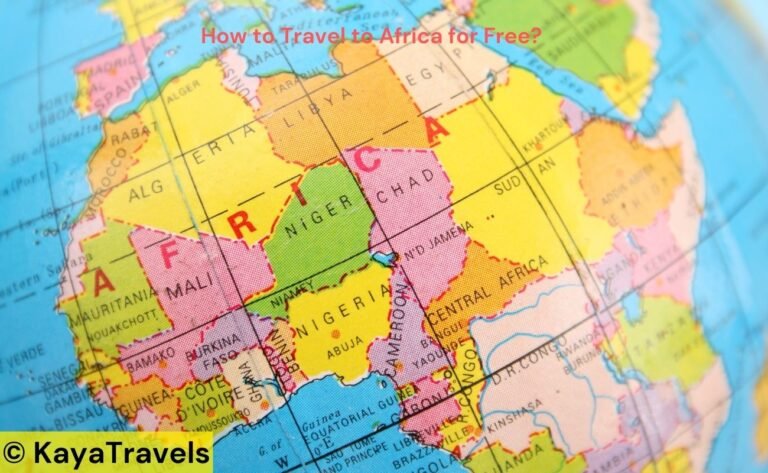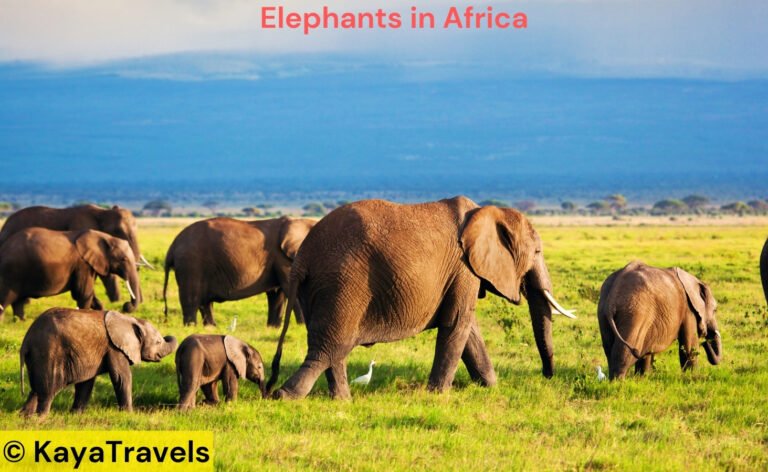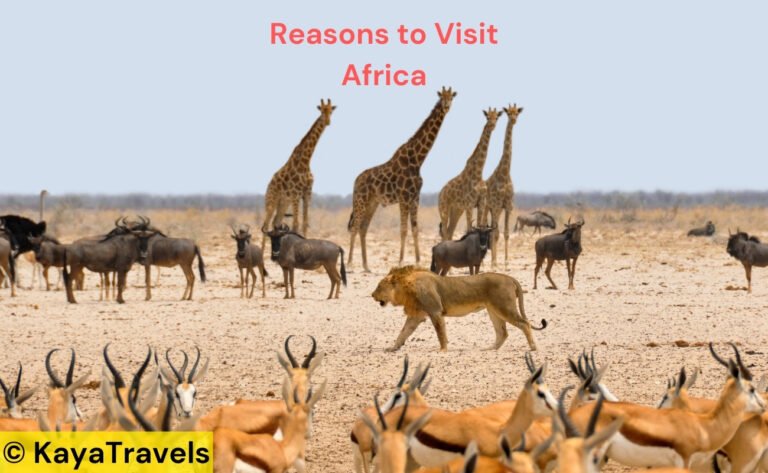Travelling to Africa presents a unique set of adventures, from safaris to exploring historical sites, but it also comes with risks and uncertainties. Securing travel insurance is a crucial step in planning your African journey. It safeguards against unexpected events disrupting your trip, such as cancellations, medical emergencies, or lost luggage.
Choosing the right travel insurance for Africa means looking at the specific activities you plan to undertake. Are you going on a safari, hiking Kilimanjaro, or simply soaking in the urban life of cities like Cape Town or Cairo? Policies differ in coverage for high-risk activities, medical services, and repatriation, so selecting one that covers your itinerary is vital.
Look for policies that offer 24/7 emergency support and benefits like trip cancellation, medical expenses, baggage loss, and travel delays.
Remember, while the cost is essential, the cheapest option might not provide the comprehensive coverage needed. Compare quotes from various insurers, understanding the benefits and exclusions of each. Investing in a travel insurance policy that fits your trip to Africa will offer peace of mind so you can enjoy the continent’s wonders to the fullest.
Understanding Travel Insurance Options
Knowing your travel insurance options can save you from unexpected troubles when planning your African adventure. From cancellations to medical emergencies, the right insurance has got your back.
Types of Travel Insurance
There are several types of travel insurance to consider:
- Trip Cancellation Insurance: Protects your investment if you need to cancel your trip due to unforeseen events.
- Travel Medical Insurance: This covers medical expenses if you get sick or injured on your trip.
- Baggage Insurance: Compensates for lost, stolen, or damaged luggage.
- Emergency Medical Evacuation Coverage: Essential for remote areas, covering transport to the nearest hospital.
Choosing the Right Insurance for Your Trip
When selecting travel insurance, consider:
- Destination: Remote regions of Africa may require higher medical coverage.
- Activities: Ensure your insurance covers adventure activities if they’re on your agenda.
- Length of Stay: Longer trips might benefit from higher policy limits.
Important Travel Insurance Benefits
Ensure your policy includes these crucial benefits:
- Medical Coverage: Look for a minimum of $100,000 in medical coverage.
- Emergency Evacuation: Opt for a policy with a high coverage limit to safeguard against the high cost of medical evacuations.
- Exclusions and Limitations: Understand what’s not covered to avoid surprises.
Travel Insurance Providers
When browsing providers, check if they:
- Offer policies specifically covering the regions and activities in Africa you’re interested in.
- Have strong financial backing and positive customer service records.
- Have transparent terms so you’re clear on what’s included and excluded.
Remember, the best insurance policy matches your travel needs and gives you peace of mind while exploring Africa. Read the fine print and choose a trusted insurer that suits your adventure.
Health and Safety Considerations
When planning your trip to Africa, your health and safety are paramount. Here are key points to ensure you stay protected on your journey.
Health Risks and Vaccinations
Your health is your greatest asset when travelling. Before jetting off to Africa:
- Check Required Vaccines: Review the CDC and WHO recommendations for vaccinations. Commonly required or recommended vaccines include Yellow Fever, Hepatitis A and B, Typhoid, and routine vaccinations.
- Understand Local Health Risks: Research prevalent diseases such as malaria or dengue fever as these require additional precautions like antimalarial medication and mosquito repellents.
Travel Health Insurance Coverage
When acquiring travel insurance for your trip to Africa:
- Medical Expense Coverage: Confirm that potential insurance plans cover significant medical expenses from a sudden illness or injury.
- Emergency Assistance: Check for 24/7 emergency assistance services. They are vital for directing you to adequate medical facilities or emergency management.
Medical Facilities and Evacuations
- Research Medical Facilities: Know the location of clinics and hospitals near your destinations. Facilities may range from basic to well-equipped, depending on location.
- Plan for Medical Evacuation: A good travel insurance policy should include medical evacuation coverage, which is crucial if you need to be transported to a facility with appropriate care, especially considering costs can exceed $100,000.
Risks and Protections: Safaris and Adventures
Preparing for a safari or adventure in Africa requires understanding the common risks and how to protect yourself. This includes safety measures on safaris, having a plan for emergencies, and getting the right insurance for various activities.
Safety on Safaris
Your safety on safaris hinges on following strict guidelines and respecting wildlife. Do:
- Stay inside the safari vehicle unless the guide says otherwise.
- Keep noise to a minimum to avoid startling the animals.
- Avoid feeding or approaching wildlife, as this can provoke unexpected behaviour.
Emergency Protocols and Evacuation
In the unfortunate event of a medical emergency or the need for an evacuation, you must have quick access to assistance:
- Ensure your tour operator has instant communication tools and satellite phones.
- Inquire about the nearest medical facilities and understand how to reach them.
Insurance for Adventure Activities
When engaging in adventure activities like climbing Mount Kilimanjaro or witnessing the Great Migration, having tailored insurance is critical:
- Look for policies covering emergency evacuations, which could save you significant money.
- Confirm that your insurance covers specific activities, such as hot-air ballooning or diving, to ensure complete protection during these adventures.
Navigating Travel Under Extraordinary Circumstances
When planning a trip to Africa, it’s vital to prepare for unexpected events that could disrupt your journey. A robust travel insurance policy can be your best ally amid such challenges.
Coverage for Travel Disruptions
Unexpected travel delays can arise due to various issues, from weather-related delays to airline operational hiccups. Here’s what you should look for:
- Cancel for Any Reason (CFAR): This benefit allows you, as a US resident, to cancel your trip for reasons not covered by standard cancellation policies.
- Trip Interruption Coverage: Reimburses you for expenses if you need to return home earlier or later than planned due to covered events.
Civil Unrest and Political Instability
In areas experiencing civil unrest or political instability, you may face sudden and unpredictable disruptions:
- Security Evacuation: If an emergency evacuation is necessary, this ensures arrangements and covers the cost.
- Insurance Tip: Check if the policy explicitly mentions coverage for civil unrest, as not all do.
Natural Disasters and Weather Conditions
Weather and natural disasters can significantly impact your travel plans. Keep in mind:
- Weather-Related Trip Delay Coverage: Some policies compensate for delays caused by severe weather conditions.
- Baggage Loss: Protection against loss or damage to your baggage due to weather-related issues is essential.
Remember, check the fine print and speak directly with insurance providers to ensure that each potential scenario relevant to your travel to Africa is covered.
Travel Insurance for Specific African Destinations
Before you embark on your journey to Africa, it’s crucial to understand that travel insurance needs can differ by destination. Here’s a guide to help you navigate the specifics of several African countries.
Insurance Considerations by Country
South Africa:
- Covering trip cancellations and delays is essential.
- You should consider comprehensive medical insurance due to the potential for adventure activities.
Tanzania:
- Look for policies that include reimbursement for prepaid travel expenses.
- Illnesses related to safari trips should be covered.
Egypt:
- Coverage for trip interruption may be valuable due to potential political fluctuations.
- Medical coverage should include emergency evacuation.
Mauritius:
- Robust coverage for water sports and activities.
- Trip cancellation can cover weather-related disruptions.
Uganda:
- Emphasize medical coverage for potential diseases.
- Include activities like trekking in your policy.
Zimbabwe:
- Focus on inclusive medical coverage due to limited local facilities.
- Consider adding coverage for adventure activities like bungee jumping.
Seychelles:
- Ensure your policy covers water-based activities.
- Look for comprehensive medical insurance.
Visa and Entry Requirements
Passport:
- Must be valid for at least 6 months beyond your departure date.
- Have at least two blank pages for stamps.
Visas:
- South Africa, Zimbabwe, & Egypt: Visa may be required depending on your country of origin.
- Tanzania & Uganda: Visas can often be obtained on arrival or online, but check the latest requirements.
- Mauritius & Seychelles: No visa is required for stays up to 90 days for many nations.
Travel Documents:
- Always carry your travel insurance documents.
- Keep copies of your passport and visa.
Remember, different African countries have unique requirements and risks, so tailor your travel insurance accordingly, and always check the latest visa and entry information before your trip.
Practical Travel Tips and Advice
When heading to Africa, you must consider everything from packing essentials to getting the right travel insurance. Ensure you’re prepared for different scenarios, from lost belongings to learning local traditions.
Packing and Travel Documentation
Your trip begins with packing and ensuring all travel documents are in order. Create a packing list with clothes, medications, gadgets, and personal safety items to protect against theft.
- Personal Belongings: Pack light to ease your travel but also include items that aid in safety, like money belts.
- Travel Insurance: Choose a policy that covers trip cancellations, interruptions, and baggage loss.
- Ensure your passport has at least six months of validity, and secure your visas if required.
- Leave copies of your travel documents with a family member and keep a set online.
Understanding Local Customs and Culture
Respecting and understanding local customs and culture reduces the risk of offending locals and enhances your travel experience.
- Respect Restrictions: Some areas may have dress codes or behavioural guidelines—research and honour these.
- Cultural Engagement: Interact with the locals. This can mitigate potential issues like pickpocketing or robbery, as you’ll be better informed about safe and unsafe areas.
Remember to adjust to the local customs for a more authentic and trouble-free journey. Consider the benefits of trip interruption insurance, as it can be essential for unexpected changes in your itinerary, especially when travelling as an independent traveller or with intrepid families. Your approach to choosing insurance options should centre on your circumstances and the nature of your trip.

